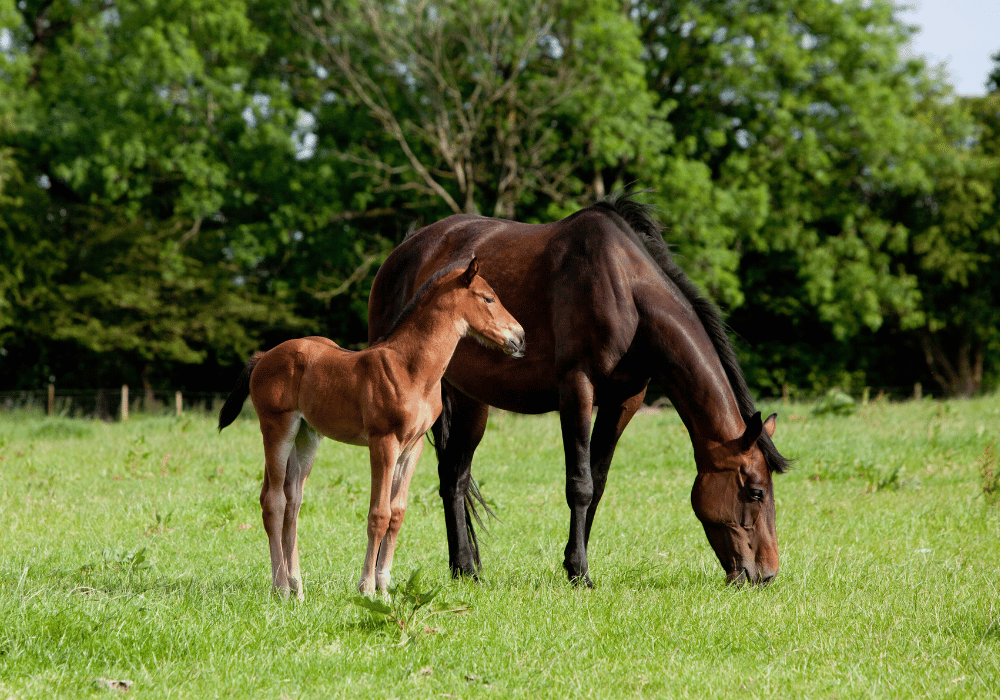While most foalings result in a strong, healthy foal, complications can sometimes occur. One potentially serious complication is that the foal does not receive enough vital antibodies from the mare’s colostrum soon after it is born. Discover the importance of IgG testing for newborn foals, and what happens when IgG levels are too low.
Why Do We Test IgG Levels in Foals?
Foals are born with no anti-infection antibodies. Once the foal is born, it is therefore critical that the foal quickly starts to suckle from the mare’s udder to make sure it gets a good supply of colostrum.
When your vet carries out a newborn foal check, they will check the foal’s IgG (Immunoglobulin G) levels. The IgG test will give an indication of the amount of antibodies that the foal has received from the mare’s colostrum.
If the amount is low, it is important to promptly start treatment, which may involve stomach tubing the foal with colostrum or putting them on a plasma drip, as well as other measures to help protect them from sepsis.
What is Colostrum?
Colostrum is the first milk that mares produce for a limited time after foaling, and it is rich in antibodies, which makes it thick and sticky and yellow in colour.
It is vital that foals get as much colostrum as possible in the 12-24h post foaling. After this time, the foal’s intestines become unable to absorb the antibodies, and the mare’s production switches to normal milk.
This is why it is important that your vet performs a newborn foal check and checks the IgG levels at around 12 hours old.
What Can Cause Low IgG in Foals?
There are several reasons why a foal’s IgG levels might be low. It may relate to the amount or quality of the mare’s milk, a physical weakness or abnormality in the foal, or the mare rejecting the foal. Reasons for low IgG levels in foals can include:
- If there has been leakage of colostrum before foaling ‘running milk’ eg if the mare has had placentitis
- If the colostrum is of poor quality
- If the mare refuses to or cannot nurse the foal
- If the foal is weak or a ‘dummy’ foal
- If the foal is struggling to stand and nurse easily (eg due to “contracted tendons”)
Avonvale Equine Vet Practice | Equine Stud Vets
If you are expecting a foal, or plan to breed from your mare, get in contact with us so that we can help you with preparations. Even if all appears well, we recommend an examination and IgG check at around 12 hours of age.
Our equine stud vets will perform a thorough examination to make sure the foal is healthy and not presenting with any abnormalities or signs of illness. They will also check the mare and assess her placenta to ensure no fragments have been retained, and that there are no signs of placentitis that put the foal in a high-risk category. In most cases alongside IgG testing foals can have a serum amyloid A (SAA) check at 12 hours old. This checks for signs of infection, and particularly sepsis, in new born foals.
Contact us on 01295 670 501 for more information.









